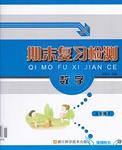̀âÄ¿ÄÚÈƯ
¡¾̀âÄ¿¡¿ÊéĂæ±í´ï
ÄăÓÚ2016Äê9ÔÂ16ÈƠ½Óµ½ÁËͬѧµÄµç»°£¬ËûÓÉÓÚ³ö²îÔÚÍâÎ̃·¨È¥»đ³µƠ¾½Ó¸Ơ¸Ơ¶¯ÍêÊÖÊơµÄĸÇ×£¬ËäÈ»ËûĸÇ×ÓĐËûĂĂĂĂÅă°é£¬µ«ÊǷdz£Đè̉ªÄăÈ¥°ïæỞ̉»¸öÂÖ̉Ρ£ÇëÄă¸ù¾ỬÔÏẨªµă£¬Đ´̉»ÆªÈƠ¼Ç£¬¼ÇĐđµ±̀́·¢ÉúµÄÊÂÇé¡£
ÄÚÈƯ°üÀ¨£º1. ½Óµ½µç»°£»
2. ¸ÏÍù³µƠ¾£»
3. Ởµ½ÂÖ̉Σ»
4. ËÍÈ˵½¼̉¡£
̉ª Çó:
1. ´ÊÊư100×óÓ̉£¬ÈƠ¼Ç¿ªÍ·̉Ѹø³ö£¬²»¼ÆÈë×Ü´ÊÊư£»
2. ¿ÉÊʵ±Ôö¼ÓĐÅÏ¢£¬̉ÔʹÎÄƠ±£³ÖÁ¬¹á¡£
September 12, 2016 Monday Sunny ____________________________________________________________________________________________________________________________________________________________________ ______________________________________________________________________________________________________________________________________________________________________________________
¡¾´đ°¸¡¿
¡¾²Î¿¼·¶ÎÄ¡¿
September 12, 2016 Monday Sunny
Early in the morning, I was doing morning exercise when I received a call from my friend. He told me his mother who had just had an operation accompanied by his sister would get to the railway station soon but he was on business in another city. Therefore he asked me for help, and a wheelchair was a must.
I learned there was some time left for me to reach the station. I called a taxi and hurried to the place. I told one girl working at the station of our trouble. She called her leader and a wheelchair was sent to us quickly. The girl and I came to the platform waiting for them. Later, I sent them to home safely. Though tired, I felt very pleased.
¡¾½âÎö¡¿ÂÔ

 ÆÚÄ©¸´Ï°¼́²âϵÁĐ´đ°¸
ÆÚÄ©¸´Ï°¼́²âϵÁĐ´đ°¸ ³¬ÄÜѧµäµ¥ÔªÆÚÖĐÆÚÄ©×῭â³å´̀100·ÖϵÁĐ´đ°¸
³¬ÄÜѧµäµ¥ÔªÆÚÖĐÆÚÄ©×῭â³å´̀100·ÖϵÁĐ´đ°¸ »Æ¸Ô360¶È¶¨ÖÆĂܾíϵÁĐ´đ°¸
»Æ¸Ô360¶È¶¨ÖÆĂܾíϵÁĐ´đ°¸ Ñô¹â¿¼³¡µ¥Ôª²âÊÔ¾íϵÁĐ´đ°¸
Ñô¹â¿¼³¡µ¥Ôª²âÊÔ¾íϵÁĐ´đ°¸¡¾̀âÄ¿¡¿Ñ¡´Ềî¿Ơ¡£
¸ù¾ƯÓï¾³£¬ÓĂ·½¿̣ÖĐËù¸ø¶̀ÓïµÄÊʵ±ĐÎʽ̀î¿Ơ¡££¨Ă¿¸ö¶̀Óï½öʹÓẲ»´Î£©
come into being; according to; so that; do harm to; be employed in; long before; a number of; come after; for sure; die out |
¡¾1¡¿Just as the light will ________ the darkness, the end of the hard way is sure to be happy forever.
¡¾2¡¿I¡¯m afraid you must get out of the habit, for it¡¯ll ________ your health.
¡¾3¡¿Some reports said he had left the camp only a couple of hours earlier, but we never knew ________.
¡¾4¡¿The company has a free long-distance telephone number ________ buyers can call with any questions about what they have bought.
¡¾5¡¿The examination was coming and the school students ______________ preparing their lessons.
¡¾6¡¿When the expression first _______________, people refused to use it but gradually they began to accept it.
¡¾7¡¿Don¡¯t be so upset. It won¡¯t be __________ your children can return to school again.
¡¾8¡¿__________ the weather forecast, there will be a heavy rain tomorrow morning.
¡¾9¡¿In recent years, ____________ wild animals have been found in the forest.
¡¾10¡¿If too many of these rare animals are killed, they will ___________.